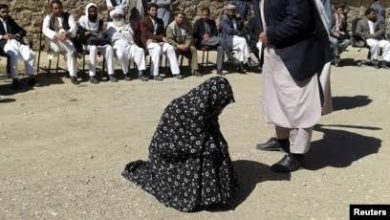
UNAMA Report: Taliban’s Morality Law Causing Severe Restrictions, Poverty, and Capital Flight
The United Nations Assistance Mission in Afghanistan (UNAMA), in a recent report, has shed light on the impact of implementing the “Amr bil Maruf and Nahi Anil Munkar” law on the lives of the Afghan people.
This report, published today (Thursday, 10 April), is based on UNAMA’s observations and monitoring across the country. It examines the effects of this law on people’s lives during the six months following its implementation by the Taliban.
According to the report, the Taliban government has made significant efforts to enforce the law, led by the Ministry for the Promotion of Virtue and Prevention of Vice. These efforts include the establishment of provincial committees in 28 provinces and the mobilization of over 3,300 officials (hisbah officers) to implement the law nationwide.
UNAMA stated that the implementation of this law has had deep social and economic consequences on the lives of Afghan citizens, particularly women and girls.
These consequences include increasing restrictions on individual freedoms, access to healthcare, education, economic opportunities, and participation in public life.
According to the report, as a result of the ban on women traveling without a male guardian (mahram) and the mandatory wearing of Islamic dress, women’s access to healthcare has decreased by 60%.
Additionally, the restrictions on women’s clothing and movement have seriously challenged the humanitarian work of aid organizations. 46% of these organizations reported that, due to these restrictions, women were unable to report to their workplaces.
The report also notes that men have been detained and fined by hisbah officers for having what has been deemed an “un-Islamic” appearance, and musical instruments belonging to artists have been destroyed.
The law has also increased pressure on women from male family members, leading to family tensions. 44% of the women interviewed for the report said they were pressured by male relatives to comply with the law.
The report further states that since the enforcement of the law, many businesses — including artistic work, barber shops, and small businesses run by women — have been negatively affected.
UNAMA also reported that the law has created conditions that have hindered investment in sectors related to education and women, and millions of dollars leave the country annually as families try to finance education for their daughters abroad.
The report highlights the law’s impact on media, stating that several TV channels have been shut down in some provinces. Active media outlets, having changed their content to comply with the law, have lost viewership and revenue.
The Taliban’s “Amr bil Maruf and Nahi Anil Munkar” law was passed on 21 August 2024 by Hibatullah Akhundzada, the group’s leader.
This law imposes extensive restrictions on women and the media, while granting broad powers to the hisbah officers to deal with violators.



